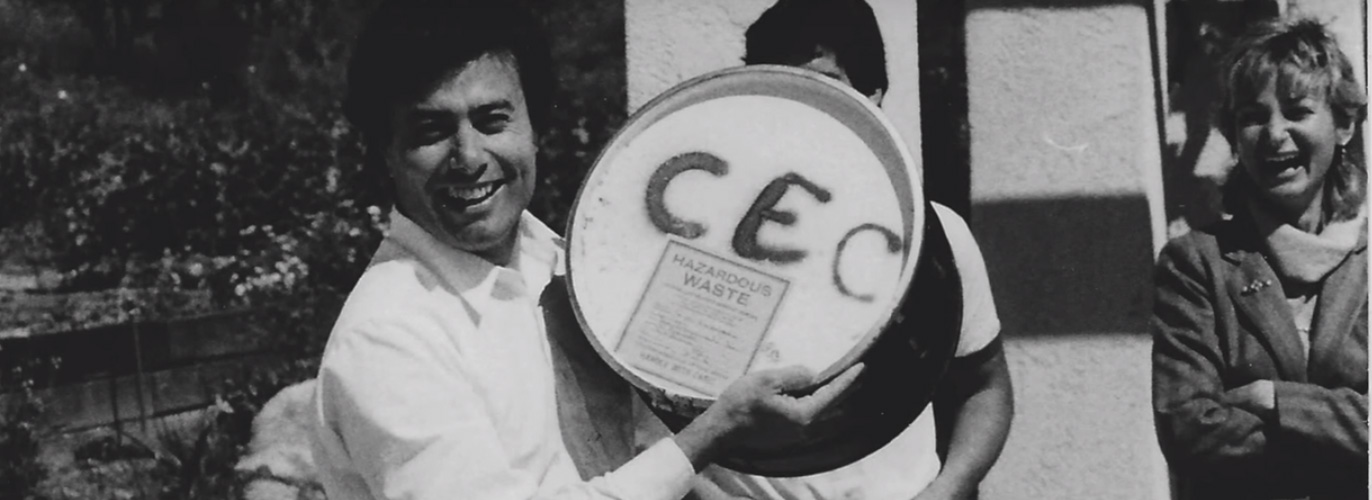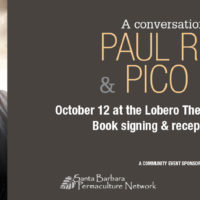
Paul Relis: Environmental Frontiersman
by Phyllis de Picciotto, Stan Roden
Originally published in the Santa Barbara Independent. October 9, 2015.
Paul Relis didn’t just happen to be in the right place at the right time. For Santa Barbara’s environmental movement, Relis was the right place and the right time. In the aftermath of Santa Barbara’s 1969 oil spill — a genuine pivot point in the evolution of American environmentalism — Relis’s genius lay in not knowing what he didn’t know. Which was a lot. Consequently, the UCSB English major-turned-environmental activist accomplished far more than he ever could have imagined.
As a rhetorical firebrand, Relis was nothing special. His real achievement was in creating a sustained institutional framework — the Community Environmental Council (CEC) — from which a multitude of seemingly modest but decidedly utilitarian programs would emerge over the years. The most obvious, of course, is recycling. Absent the stubborn determination of Relis and CEC, Santa Barbara would never have embraced recycling when it did and as passionately as it has. Likewise with community gardens. While such programs now seem so obvious as to be almost boring, they were initially dismissed as unimaginable and part of the radical fringe.
Relis set out to chronicle his political adventures as quietly crusading eco-wonk in a new book, Out of the Wasteland: Stories from the Environmental Frontier. The result is a revelation in remembrance for those of us who perhaps never appreciated how much political turmoil was required for us to enjoy a landscape we so comfortably take for granted. Relis reminds us of the megalomaniacally audacious development proposals slated for the Gaviota coast — defeated — the Carpinteria Salt Marsh — defeated — and Cabrillo Boulevard — vastly modified. Like many of his generation, Relis grew up idolizing TV actor Fess Parker, but as a community activist Relis went toe-to-toe with the Disney icon over development schemes for the city’s waterfront that would boggle the mind of contemporary observers. Ultimately Relis — and the environmental community — would get the upper hand. Eventually, Relis would be appointed to California’s Solid Waste board — pushing, prodding, and regulating — what would emerge as a $10 billion recycling industry. From there, he would move on to join the private sector, promoting the gasification of trash and using the clean-burning fuels produced to power heavy-duty trucks that would otherwise generate large quantities of pollution.
Internationally acclaimed journalist and author Pico Iyer will gently give Relis — a longtime friend and soul mate — the third degree Monday night at the Lobero Theatre, simultaneously walking Relis down memory lane while extrapolating the shamelessly hyper-localism of Santa Barbara’s environmental experience to a more global scale. “Evolution,” a short film about Relis made by documentary videographers Stan Roden and Phyllis de Picciotto, will be shown at the Lobero. Here, the second film in the series, “Serendipity,” describes Relis and his very unlikely journey. —Nick Welsh


![Santa Barbara Museum of Natural History Board of Directors. Photo By Jllm06 (Own work) [CC BY-SA 3.0 (http://creativecommons.org/licenses/by-sa/3.0)], via Wikimedia Commons](https://paulrelis.com/wp-content/uploads/2016/01/Santa_Barbara_Museum_of_Natural_History_-_exterior-200x200.jpg)


Comments (0)